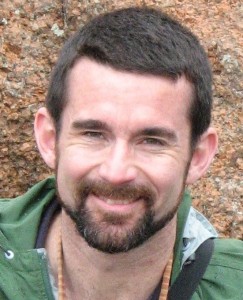 I appreciate Timothy Caulfield’s exploration of the “straw men” set up in many a discussion over integrative, complementary, or alternative medicines (CAM for short). However, I think we need to take the argument one step further. As he makes clear, many of the arguments proposed by “CAM-ers” against “conventional” medicine also apply to and undercut the claims to validity of CAM. This comes through most clearly anytime one hears in conversation the question: “Do you believe in . . . oils, herbs, meditation, etc.?”
I appreciate Timothy Caulfield’s exploration of the “straw men” set up in many a discussion over integrative, complementary, or alternative medicines (CAM for short). However, I think we need to take the argument one step further. As he makes clear, many of the arguments proposed by “CAM-ers” against “conventional” medicine also apply to and undercut the claims to validity of CAM. This comes through most clearly anytime one hears in conversation the question: “Do you believe in . . . oils, herbs, meditation, etc.?”
If the question is one of “belief”—whether in CAM, or the (dubious) wonders of what “Big Pharma” has to offer, or the necessity of a “medical approach” (for example, the opinion that a test tells us more than history taking or examination)—then one truly is talking in religious terms and not the terms that should be used to define inquiry and healing in modern healthcare.
When I teach learners about evidence based medicine (EBM), I start first with some epistemological categorization of the approaches to making decisions (this is from my very brief online intro to EBM:
• Some decisions are guided by dogma or an “a priori” set of beliefs (for example, “natural is best”).
• Some decisions are guided by tradition (for example, “we’ve always done it that way”), relying on the collective wisdom of the ages.
• Some decisions are guided by convention (for example, “everyone else does it that way”), relying on the collective wisdom of colleagues.
• An evidence based approach makes decisions based on critical evaluation and reflection (for example, “the evidence supports doing it this way”).
In fact, the advocacy for “belief” in CAM and the arguments for “standard” or “scientific” (what is usually implied here is “technology or drug based”) medicine are instances of “dogma based” medicine.
While I think there is certainly a place for “tradition” (the wisdom of the ages can at least be informative) and for “convention” (after all, there is some measure of reassurance from sticking with the crowd to a point), in the 21st century we need to shift the conversation to focus on the evidence.
Granted, there are technical, methodological, and (unfortunately, as shown by recurrent stories of data fabrication) ethical issues in producing the best evidence. Nevertheless, we need to focus our inquiry and discussion on what the best evidence is for how we may help our patients live longer and better.
For example:
• Does tea tree oil work for nail fungus? Rather than argue about whether or not to “believe” in it, a quick search of TRIP shows there have been a grand total of two controlled trials addressing the question, one showing it may work comparably well to clotrimazole, and the other showing butenafine hydrochloride plus tea tree oil may work better than placebo (and what I find disappointing here is the lack of more recent research to explore the question further).
• What is better for a cold: conventional medicine or honey? It turns out there is evidence that for children with night time cough and difficulties sleeping due to an upper respiratory infection (URI), honey may be the preferred treatment rather than dextromethorphan.
• Do all hand lacerations need sutures? Not necessarily, and in some cases avoiding suturing may be better!
Granted, these may be rather simple clinical situations (and admittedly, I picked three of my favorite illustrations). Nonetheless, they are situations that demonstrate evidence of better effectiveness with what could be considered a “CAM” approach, but the point is not “CAM” or “conventional,” rather the point is about what the evidence says.
Do I “believe” in “CAM?” No. Do I “believe” in “conventional medicine”—not necessarily that either. What I “believe” (my dogma) is that as physicians in the 21st century, it is our collective ethical obligation as healers to seek for, to understand, and to implement the best evidence for what helps our patients live longer and better lives.
William E Cayley Jr practices at the Augusta Family Medicine Clinic; teaches at the Eau Claire Family Medicine Residency; and is a professor at the University of Wisconsin, Department of Family Medicine.
Competing interests: I declare that I have read and understood BMJ policy on declaration of interests. I am the author of the open access web resources “Less is More” (an index of medical literature documenting when “less is more”) and “Evidence for the point of care,” but otherwise I have no relevant interests to declare.